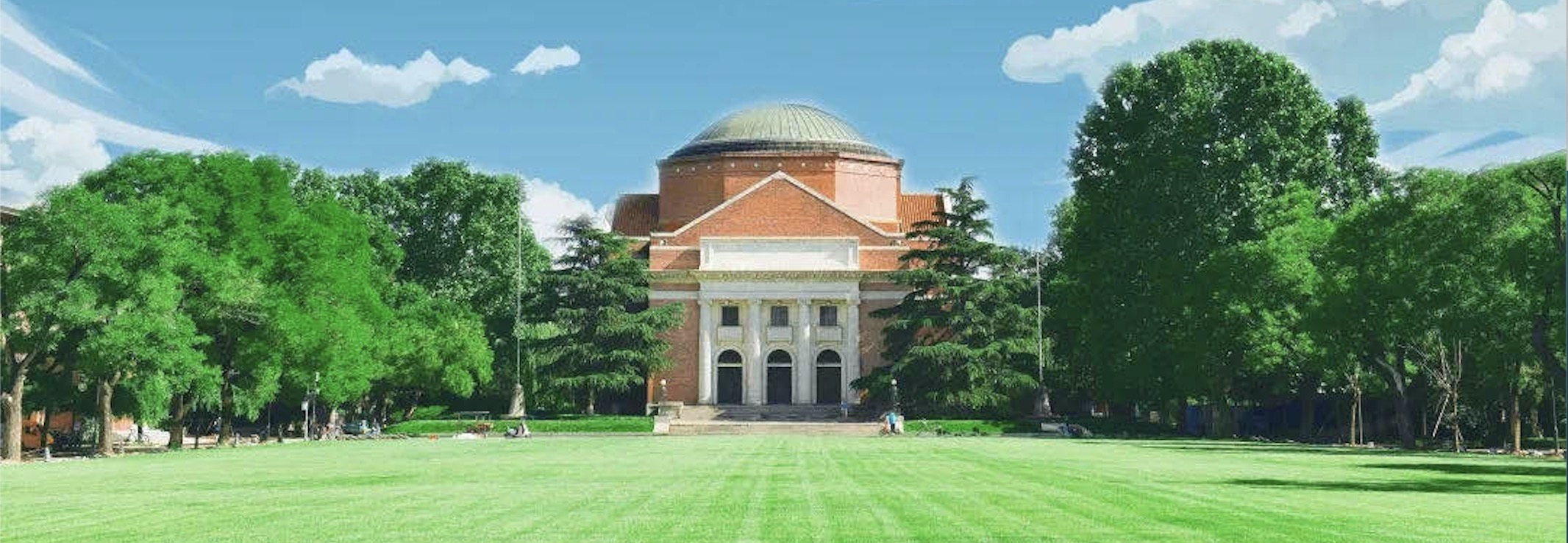The first Tsinghua Health Communication Forum, organized by the Center for Global Development and Health Communication Research, was successfully held in the Global Resource Hall of the School of Journalism and Communication (TSJC) on March 19, 2022. The center aims to conduct innovative and cutting-edge health communication research on the ground of multi-stakeholders from the government, news media, companies, and social organizations. Chen Changfeng, Executive Vice President of the School of Journalism and Communication, and Zhou Qing'an, Director of the Center for Global Development and Health Communication Research, addressed the forum. As representatives of the co-established practice base with TSJC, Ma Xin--Vice President of China Health Insurance, Su Linan--Director of Operation and Management Department of Beijing Tsinghua Changgung Hospital, and Li Mengying, Deputy Director of Operation and Management Department of Beijing Tsinghua Changgung Hospital, together attended the forum. Chen Liang, Deputy Director of the Center for Global Development and Health Communication Research, hosted the forum.
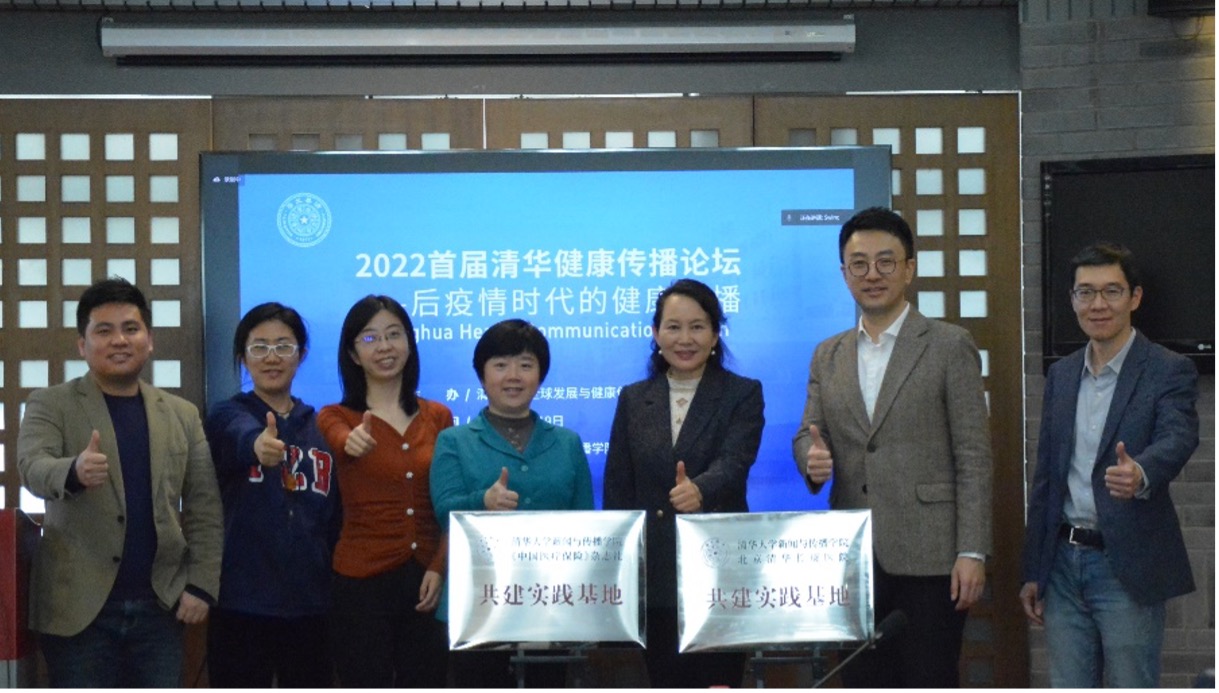
Executive VP of TSJC Chen Changfeng emphasized that the center is established to promote the multidisciplinary development of health communication and to integrate scholars and professionals.
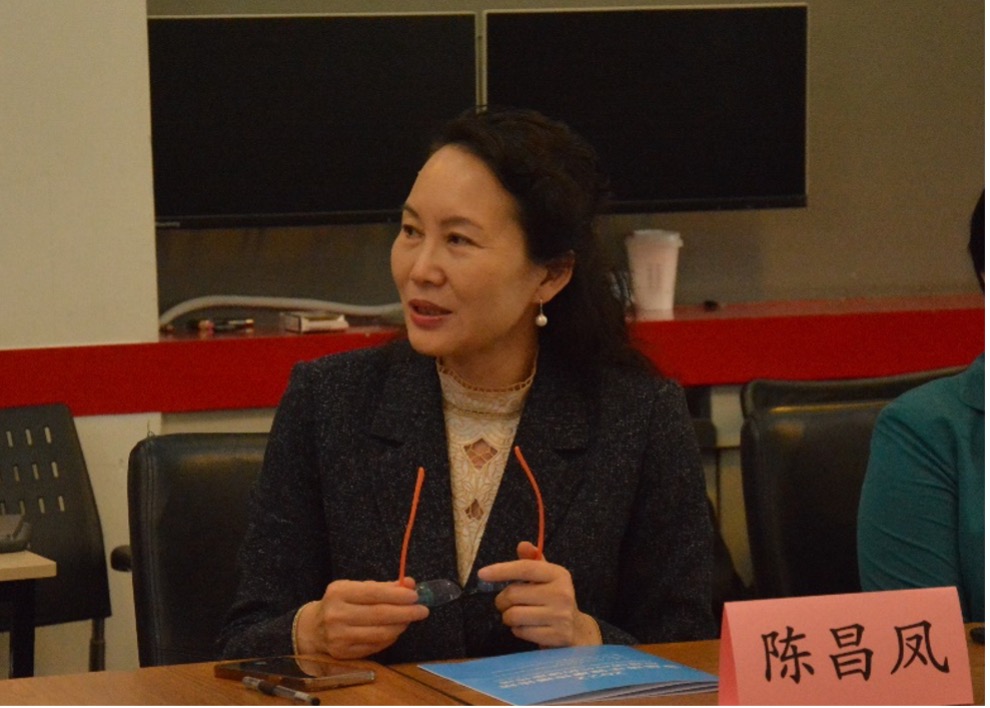
Chen Changfeng delivered an address at the forum
Considering the development of communication studies, Zhou Qing'an pointed out a “three-fold intersection” of health communication research. The first intersection was famous for the "narrative and scientific tradition" fueled by empirical research methodologies after World War Two. Stepping into the 21st century, the integration of public health practice and communication theory was the second intersection. Since the breakout of COVID-19, however, a third intersection has been evolving on the track of “risk detection”, “risk communication” and “risk management.”
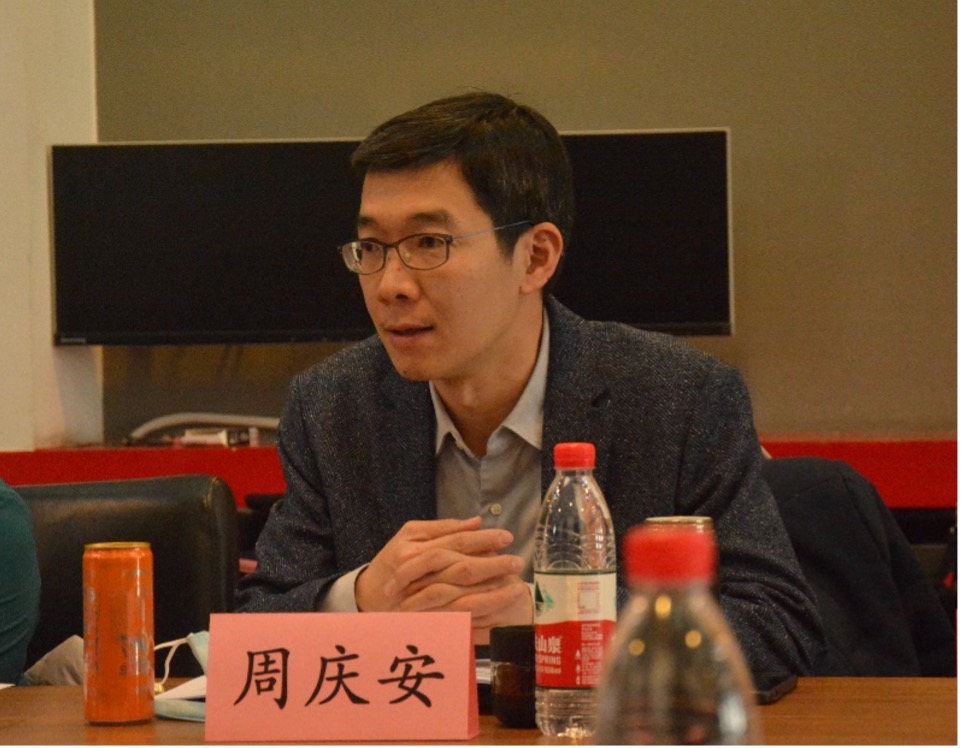
Zhou Qing'an delivered an address at the forum
Ma Xin, VP of the China Health Insurance, pointed out that medical practitioners call for theoretical back from health communication--building a practice base together with TSJC can scientifically contribute to people's health.
It is a good opportunity to cooperate with TSJC, build a practice base and absorb theoretical support from communication research, said Su Linan. He pointed out that a series of cooperation with TSJC can not only promote the branding of medical products but also guide the public to develop health awareness.
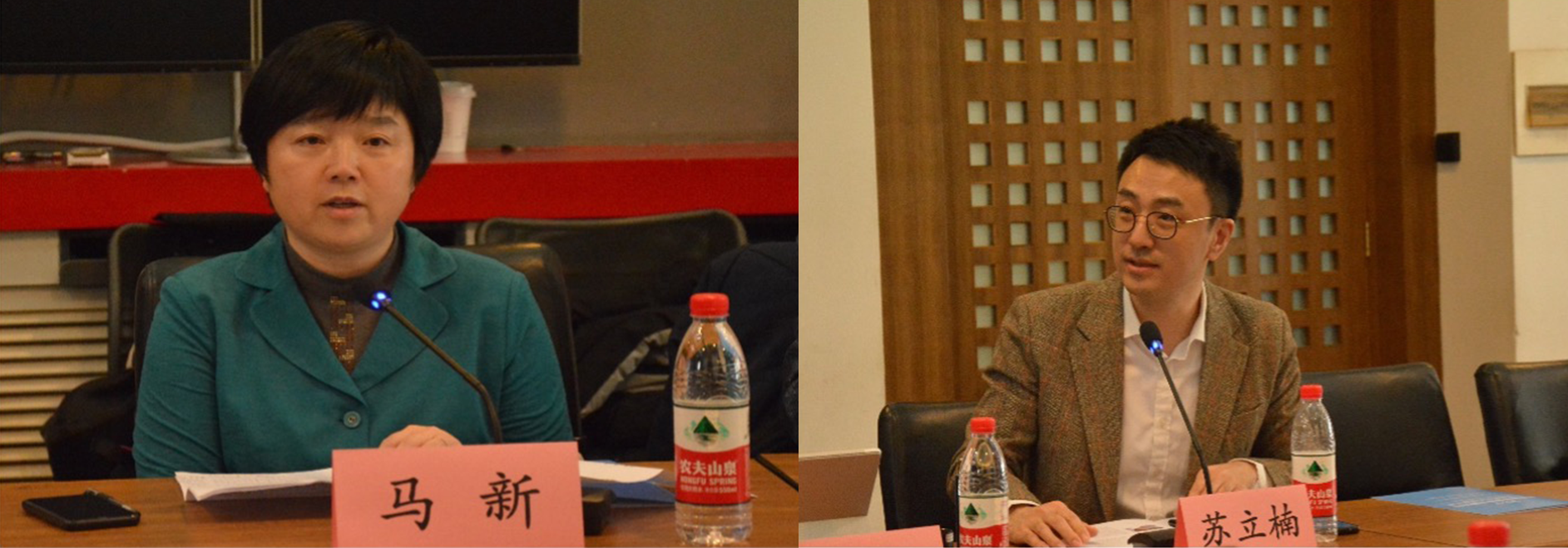
Ma Xin (left) & Su Linan (right) delivered speeches at the forum
Afterwards, Chen Changfeng awarded two practice bases, TSJC- China Health Insurance and TSJC-Beijing Tsinghua Changgung Hospital.
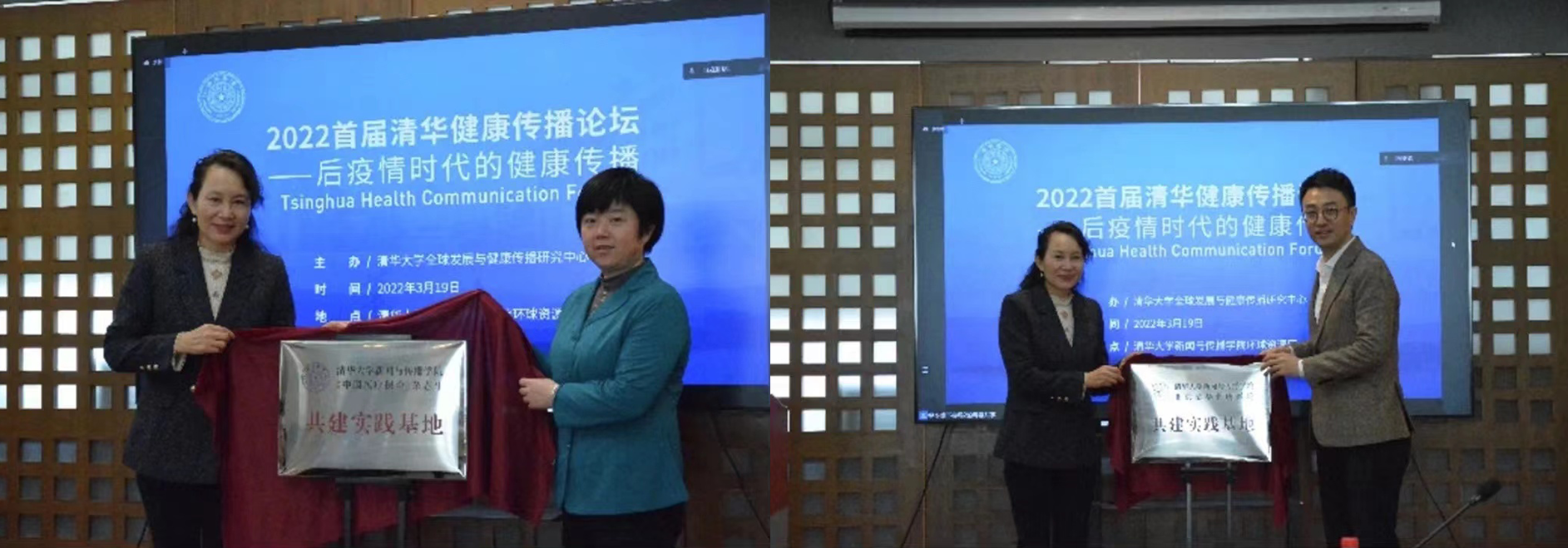
The Ceremony of Awarding
After the award ceremony, eight scholars gave speeches, sharing their recent research and reflections based on four perspectives--"Origin, Value and Paradigm Reflection", "Research Cases and Methodology", "Health Communication Localization", and "Health Communication Education".
Origin, Value, and Paradigm Reflection
Sun Shaojing, professor of Fudan University and chairman of the Chinese Association for History of Journalism and Communication, suggested that the social isolation that resulted from COVID-19 is fueling "spaced out" social media becoming a significant research field as well as manifesting "communication affordance." In the post-epidemic era, "crisis detection" and "crisis control" (i.e., prevent/control the dissemination of misinformation) have become emerging fields.
Also, starting with "crisis," Xu Jing, professor of Peking University, pointed out that the discipline of health communication in China was born and grew out of public health emergencies (e.g., SARS in 2003 and the tensions between doctors and patients in 2016). In response to the crisis, Xu believes that personal decision-making, patient-centered consulting, social mobilization, and community building should be the fundamental values of health communication research.
From the humanism paradigm to the “super-humanism” paradigm, Zhang Di, professor at the School of Journalism of Renmin University of China, put forward that the things we take for granted as "technology" have evolved as new subjects or objects in the AI age, fundamentally different from the distribution logic of offline health message guide. Zhang pointed out that it is necessary balancing social constructionism and technology-centric perspectives, moving beyond technological instrumentalism, and bridging macro research with micro research (i.e., media effects) before the revolutionary progress in AI technology acceptance, digital divide, cognitive-behavioral effects, and even socio-cultural shaping.

Sun Shaojing (left), Xu Jing (middle) and Zhang Di (right) delivered speeches at the forum
Methodology for Case Studies
Starting with humanism, Shi Jingyuan, the assistant professor from the Department of Communication Studies at Hong Kong Baptist University, found through experimental studies that passive users can benefit from online social mutual mental health communities.
Similarly, Yang Xiaodong, the associate professor from the School of Journalism and Communication at Shandong University, explored how information-seeking behavior influenced three types of behavioral intentions, including self-help, lay self-help, and professional self-help through a health belief model through a survey.
In addition to traditional research methods, Professor Sun pointed out that data science also provides some new methods for health communication research, such as social network analysis, data mining, and sentiment analysis. Meanwhile, it should be emphasized that the definition of "data" is not limited to numbers. The rational use of these new tools to synthesize "multimodal data" at home and abroad is also the key to promote the future progress of health communication theory and practice.
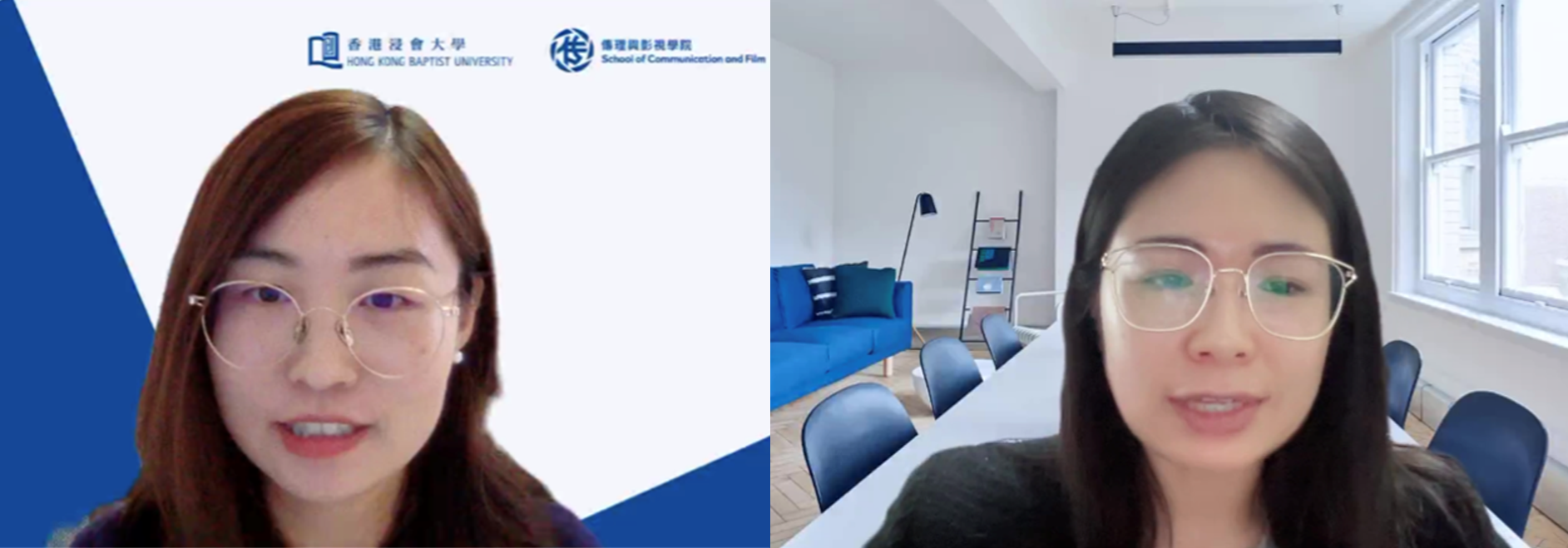
Shi Jingyuan (left) & Yang Xiaodong (right) introduced case studies at the forum
Localization of Health Communication Research
Zhou Min, Professor of School of Journalism and Communication, Beijing Normal University, as well as Zhou Yuqiong, Professor of School of Communication, Shenzhen University, delivered their speeches on the shared common concern of localization of health communication research, exploring how Western health communication theories can be better grounded in the Chinese social context.
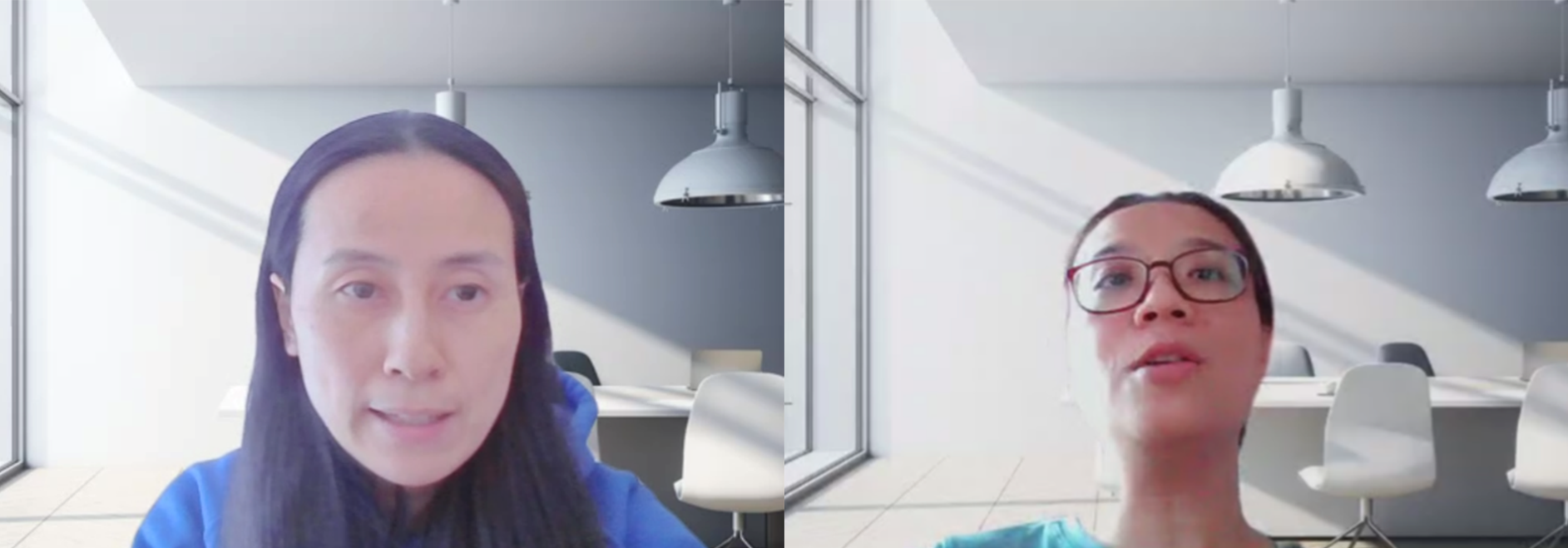
Zhou Min (left) & Zhou Yuqiong (right) delivered speeches at the forum
Health Communication Education
As education is an essential part of the heritage and continuity of health communication research, Su Jing, the Secretary General of the Center for Global Development and Health Communication Research, emphasized the importance of health journalism training and health journalism research. According to Su, training in health journalism, learning about public health, mastering the aforementioned research methodologies, and being familiar with the Chinese reality are all basic elements for building a professional knowledge system in health communication.
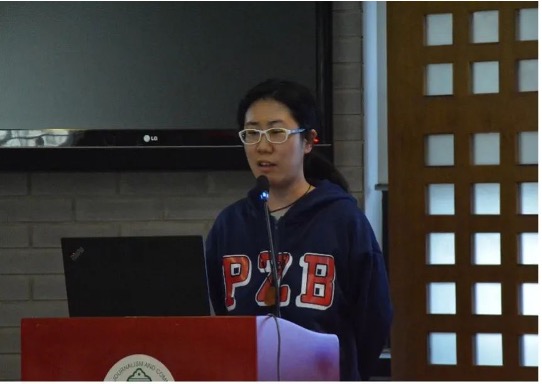
Su Jing delivered speeches at the forum
At the end of the forum, Qing'an Zhou reviewed the rich and profound sharing of the participants, pointing out that the starting point and values of health communication research, empirical research, and methodology, as well as the path of localization, are all key issues of concern to academics and industry colleagues. It is believed that in the subsequent series of activities to be held by the Center for Global Development and Health Communication Research, scholars and practitioners will be able to further answer the worthy questions of what and why is health communication, and how to discover the world from China.
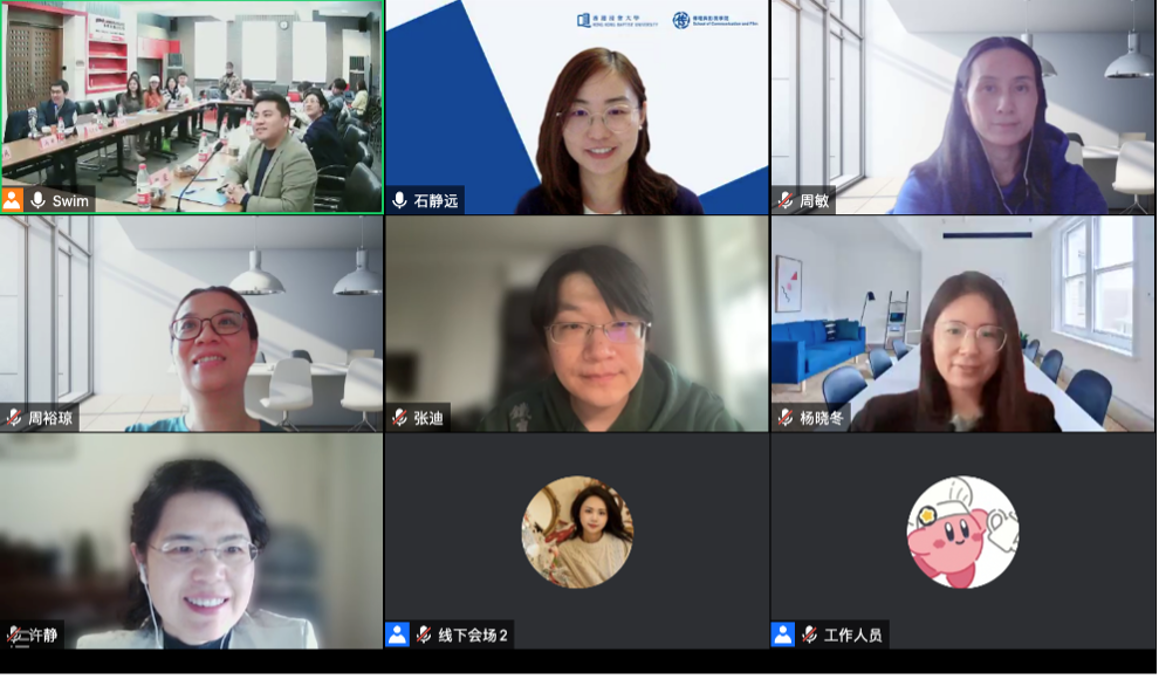
Keynote speakers and guests at the first Tsinghua health communication forum
